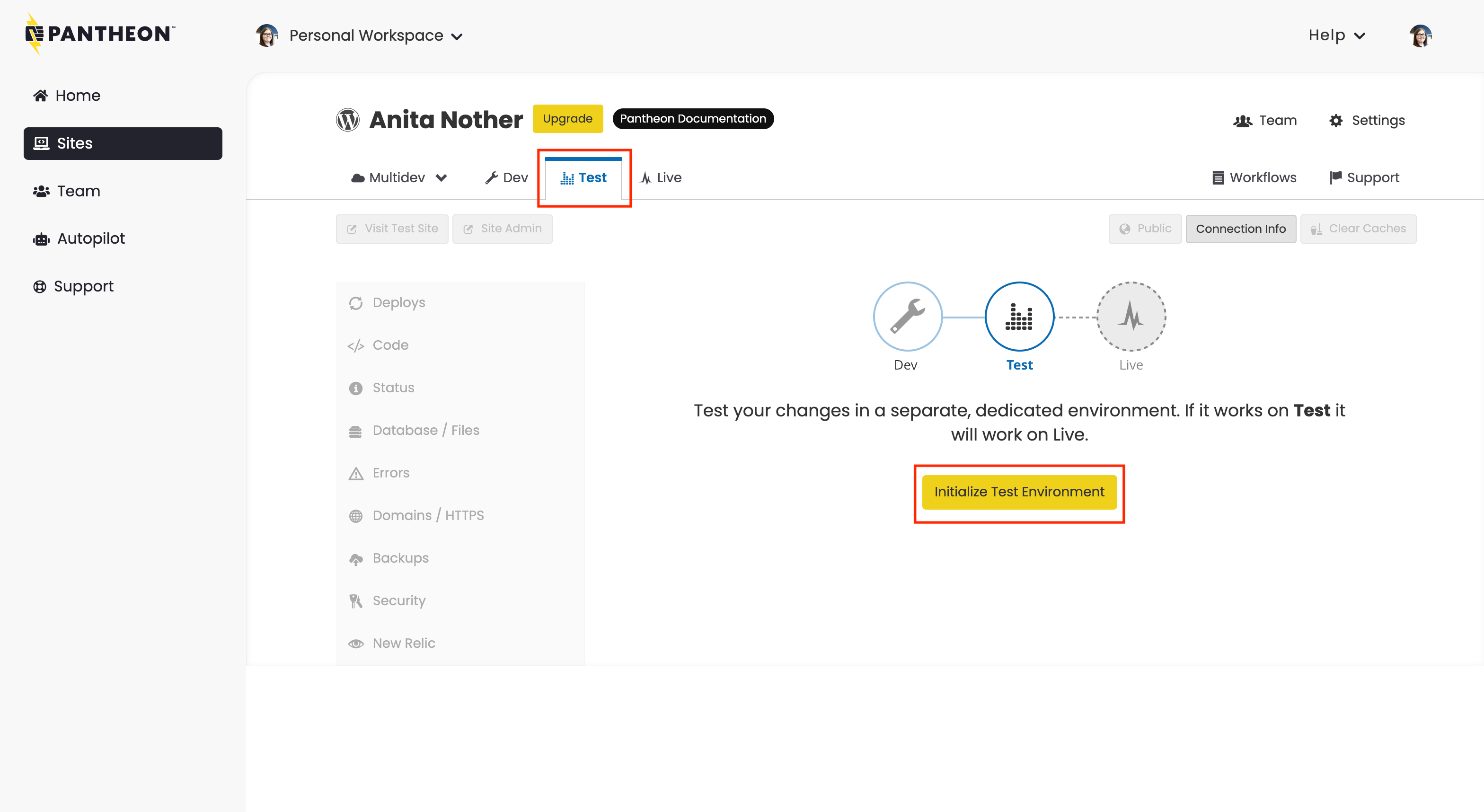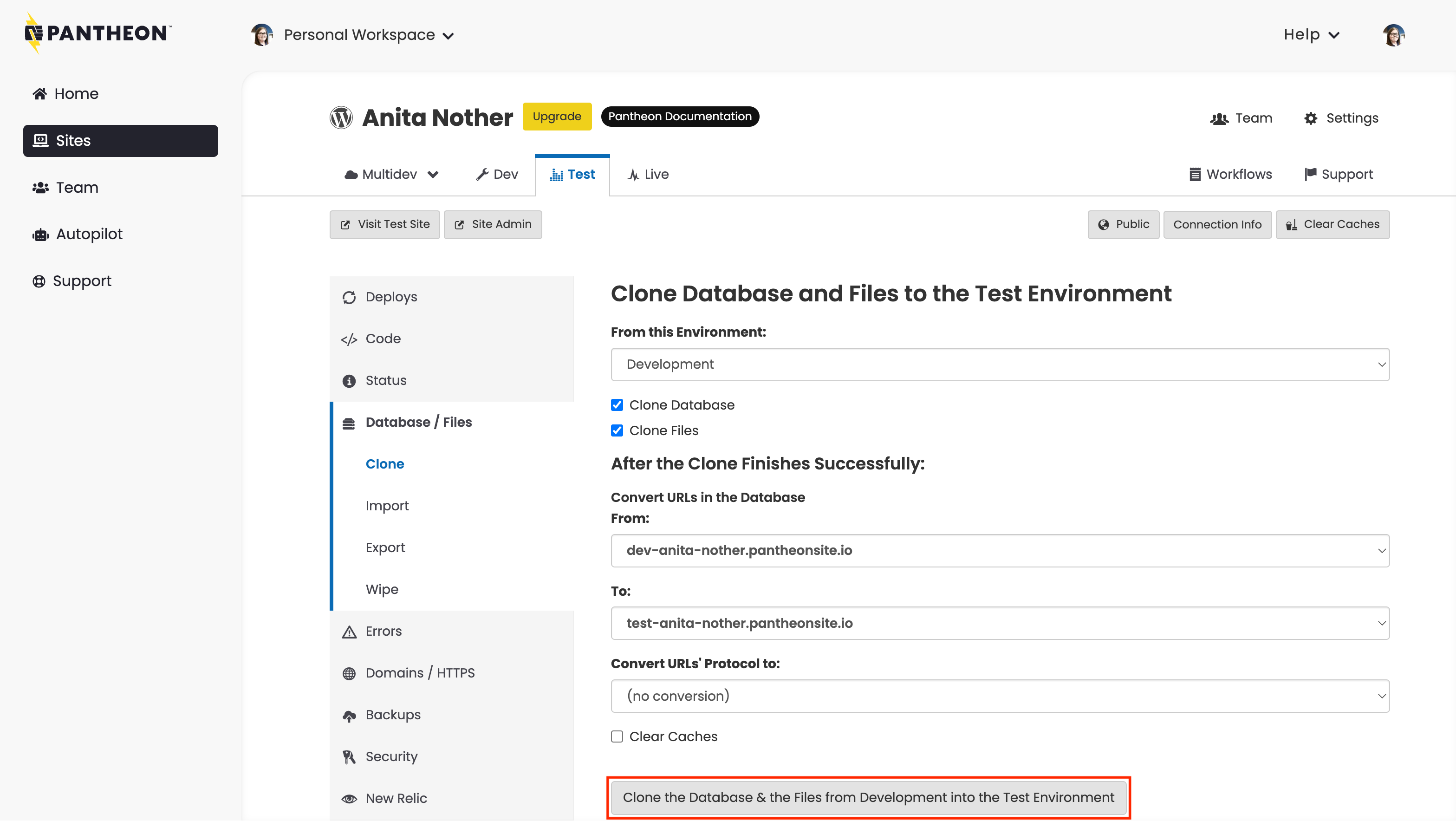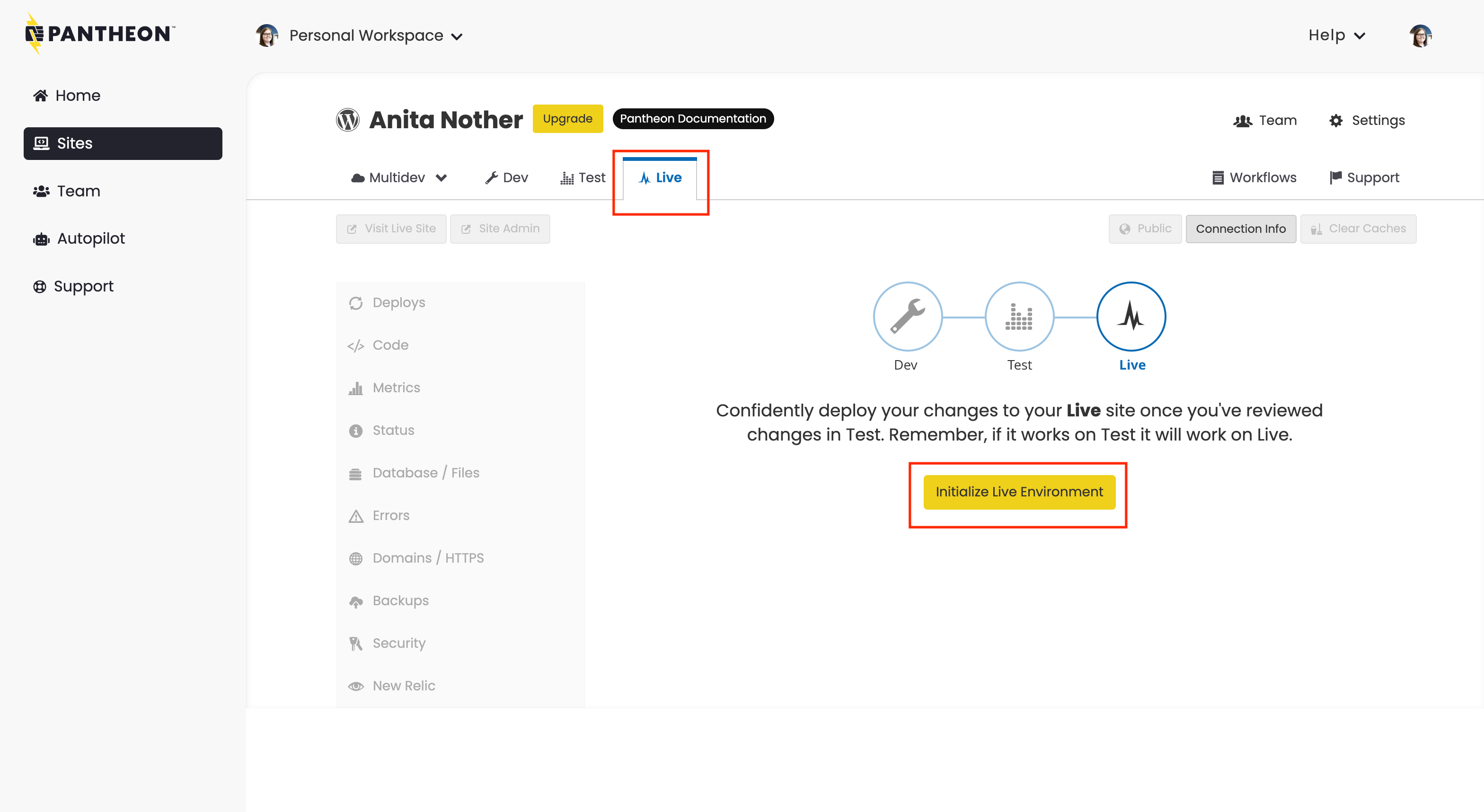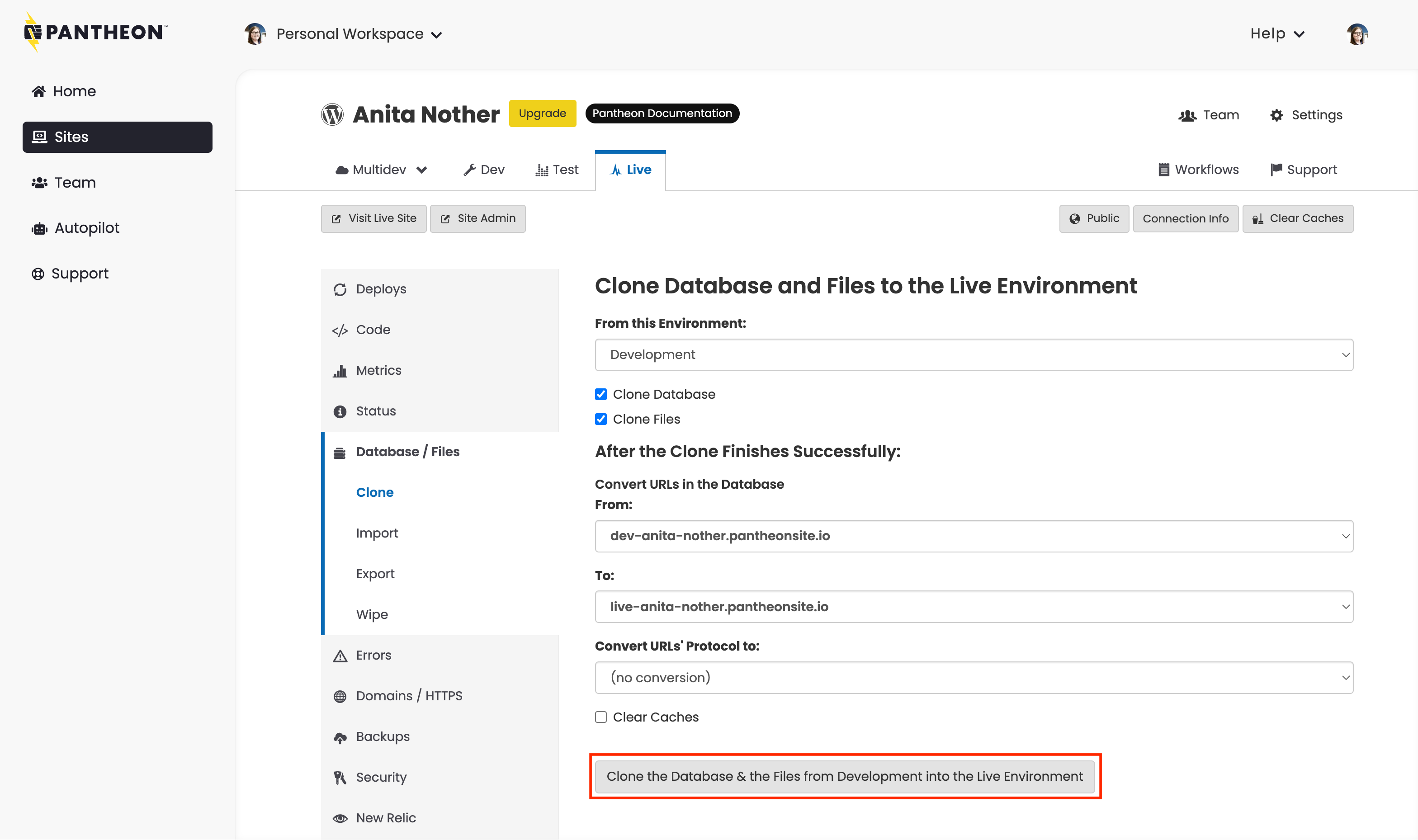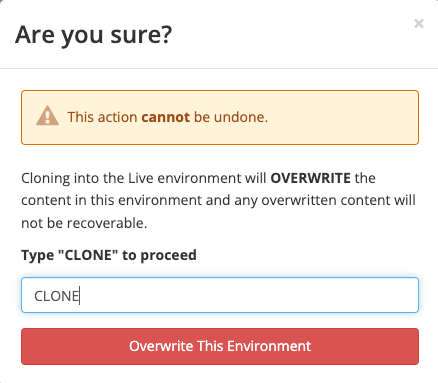Migrate
Perform the migration.
Pantheon provides a guided path for migrating existing sites to the platform. This process begins by clicking Migrate Existing Site.
You now have a Dev environment containing your migrated site, including your Content Management System (accessible via the Site Admin button).
To create your Test environment:
-
Click the Test tab, then click Initialize Test Environment to create your Test environment.
This takes a few moments.
-
Go to the Database / Files tab and select the following:
- From this Environment: Development
- Clone Database: Checked
- Clone Files: Checked
-
Click Clone the Database & the Files from Development into the Test Environment.
To create your Live environment:
- Go to the Site Dashboard.
- Click the Live tab.
- Click Initialize Live Environment to create your Live environment.
-
Go to the the Database / Files tab and select the following:
- From this Environment: Development
- Clone Database: Checked
- Clone Files: Checked
-
Click Clone the Database & the Files from Test into the Live Environment.
-
Type "CLONE" and then click Overwrite This Environment when prompted to confirm you want to go live.
Review Troubleshooting or contact Support if the migration is unsuccessful. Include a link to the Site Dashboard and any details you can provide, such as where you are migrating the site from.
